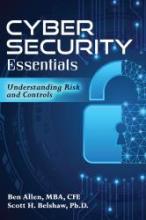Search Results: 31 - 40 of 6898
display
Earth's Natural Hazards: Understanding Natural Disasters and Catastrophes
Author(s): Ingrid A. Ukstins, David M Best
OUR PLANET IS A DYNAMIC PLACEGlobal pandemics, earthquakes, volcanic eruptions, cyclonic storms and many other natural hazards occur across our planet every day and have significant human impact. This textbook examines how normal processes of the Earth-atmosphere-hydrosphere-space systems result in ...Entrepreneurial Family Business: From Survival to Success
Author(s): Dianne Welsh
Entrepreneurial Family Business: From Survival to Success is a comprehensive look at the impactful elements surrounding family business and entrepreneurship throughout time. It emphasizes the importance of overlap between family, business, and ownership by utilizing story-telling techniques. By expl...Geology of National Parks
Author(s): David A. Foster, David Hacker, Ann G Harris
The National Parks of the United States preserve our nation's iconic landscapes and some of the finest examples of geologic heritage. From glaciers to caves, volcanoes to canyons, or mountains to coral reefs, the nation's geologic features and landforms have been an important part of the American ex...Severe and Hazardous Weather: An Introduction to High Impact Meteorology
Author(s): Robert Rauber, John Walsh, Donna Charlevoix
The fifth edition can be found HERE Extreme weather and climate events have impacted every region of the United States and many regions throughout the world during the five years since the publication of the previous edition of Severe and Hazardous Weather. The recent fires in California and Oregon...Geologic Disasters Workbook with Applications to Physical Geology and Oceanography
Author(s): David M Best, Mario V Caputo
Our planet is a dynamic place. Geologic Disasters Laboratory provides hands-on learning experiences for students to better understand the geologic concepts behind the disasters they are studying.The individual laboratories featured in this book are created to fit with courses using Earth’s Natural H...Mechanisms and Logic in Human Physiology
Author(s): Erik P. Silldorff, Gerald D. Robinson
Mechanisms and Logic in Human Physiology is a next-gen learning resource, adapting to a variety of pedagogical strategies as well as strongly promoting higher order thinking, the ultimate goal of 21st century pre-clinical education. Physiology - a study of complex systems in motion - requires a deep...History and Tradition of Jazz
Author(s): Thomas E Larson
History and Tradition of Jazz is not just a story of jazz music and musicians, but the struggle to achieve, create, and invent for the sake of this musical art form. The publication features stories and legends of important events and people who shaped jazz history, while addressing how the music h...Cyber Security Essentials: Understanding Risk and Controls
Author(s): Scott H. Belshaw, Ben Allen CISM CRISC
Since the 1990's, the internet has transformed business by enabling the collection, analysis, and almost instantaneous transmission of data. It has also transformed crime. The demand for 24-hour online access to databases and information has created unprecedented opportunities for unethical people. ...The Musical Experience
Author(s): John Chiego, Joel S. Schnackel
The Musical Experience is a seamlessly integrated enhanced learning package that features a thematic approach to music appreciation— each theme is described along a historical timeline.Whether it is music to Celebrate, Music from the Stage, or Music for Mourning, the reader will associate the music ...Essential Biology: An Applied Approach
Author(s): Peter Daempfle
Essential Biology: An Applied Approach is a textbook intended for introductory college biology courses. It uses a society-based approach to guide readers to appreciate biology as it applies to current and historic cultural issues. Essential Biology serves the traditional undergraduate biology curric...







